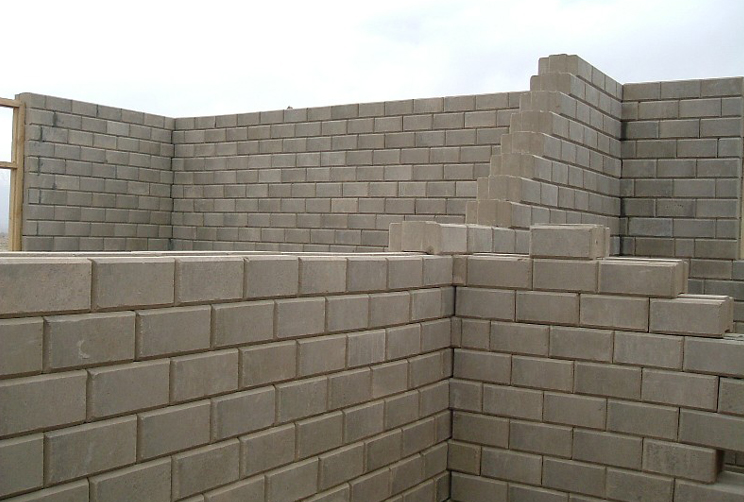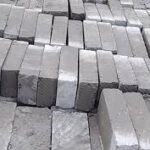Kenya’s construction industry is rapidly evolving with new technologies emerging to meet the demand for affordable housing. Interlocking blocks are among the most popular materials gaining traction in both urban and rural construction. Compared to conventional materials like machine-cut stones, interlocking blocks present a cost-effective, eco-friendly, and efficient option.
In this article, we explore the current cost of interlocking blocks in Kenya, their production process, and their advantages over traditional construction materials.
What Are Interlocking Blocks?
Interlocking blocks are building components that fit together like puzzle pieces, eliminating the need for mortar on horizontal joints. These blocks are either rectangular or curved, providing stability through their unique shape. Thanks to their precision and design, they streamline the building process, reduce labor costs, and save on mortar.
Cost of Interlocking Blocks in Kenya
The cost of interlocking blocks ranges between Ksh 25 and Ksh 35 per block, depending on factors like the location, supplier, and raw material costs. Some manufacturers may also allow customers to supply the raw materials and charge only for labor, which typically ranges from Ksh 12 to Ksh 25 per block.
It’s essential to include transport costs in your budget, especially for long distances, as transportation significantly affects the final cost. Prices also vary slightly based on regional supply chain logistics—for instance, the costs may be lower in areas near quarries or in regions with more suppliers.
Materials Used in Interlocking Block Production
The materials used to produce interlocking blocks influence their appearance but not their durability. The most common types include:
- Greyish Blocks – Made from cement and quarry dust.
- Reddish Blocks – These can either use:
- Red soil, cement, and river sand, or
- Murram, cement, and quarry dust.
The ingredients are mixed in specified ratios and compressed using specialized interlocking block machines to produce high-quality blocks that are uniform and durable.
How Interlocking Blocks Lower Construction Costs
While the per-piece cost of interlocking blocks might seem comparable to machine-cut stones, the overall savings during construction are significant. Here’s how:
1. Reduced Mortar Use
The unique design of interlocking blocks eliminates the need for horizontal mortar joints, resulting in a reduced demand for cement and sand during construction.
2. Lower Labor Costs
A mason working with interlocking blocks can install up to 300 blocks per day, compared to around 150 machine-cut stones. This translates to faster project completion and lower labor costs.
3. Minimal Plastering and Finishing
Interlocking blocks have a smooth finish that reduces the need for plastering. In some cases, homeowners may opt to skip plastering altogether, cutting down on the cost of cement, sand, and labor.
4. Less Steel Reinforcement for High-Rise Structures
The lightweight nature of interlocking blocks means engineers can reduce the amount of steel reinforcement required for multi-story buildings, leading to further cost savings.
Additional Benefits of Interlocking Blocks
Beyond cost savings, interlocking blocks offer several functional benefits:
- Soundproofing: The hollow nature of the blocks improves sound insulation between rooms, enhancing privacy.
- Water-Resistant: The blocks resist moisture absorption, reducing dampness in homes and minimizing maintenance costs.
- Eco-Friendly: The production of interlocking blocks uses locally available materials and consumes less cement, making it a more sustainable construction option.
- Structural Strength: Interlocking blocks have been approved for use in story buildings in Kenya, provided that proper engineering consultations are followed.
Challenges and Considerations
While interlocking blocks offer many advantages, there are some challenges to keep in mind:
- Professional Expertise Required: It is essential to engage experienced masons who understand the correct placement and alignment of the blocks. Poor installation can compromise the structure.
- Quality Control: Not all suppliers produce high-quality blocks, so it is critical to source materials from reputable manufacturers. Substandard blocks can lead to cracking or weakening of the structure.
Where to Buy Interlocking Blocks in Kenya
Interlocking blocks are readily available from local suppliers and manufacturers, especially in regions such as Nairobi, Nakuru, Kisumu, and Eldoret. Some companies provide machines for on-site production, allowing builders to reduce transport costs and make blocks directly at the construction site.
An Affordable Solution for Kenyan Builders
Interlocking blocks are steadily becoming a preferred building material in Kenya due to their affordability, efficiency, and eco-friendliness. Although the upfront cost might seem similar to machine-cut stones, the savings in labor, finishing, mortar, and steel make them a more cost-effective choice in the long run. Additionally, interlocking block technology is being adopted in various African countries, making it a proven solution for modern construction needs.
When considering interlocking blocks for your project, consult with your engineer to ensure the best application for your building’s design and requirements. With the right planning and materials, interlocking blocks can significantly lower construction costs and speed up project timelines.
We hope you found this guide helpful. Are you planning a construction project? Consider using interlocking blocks to achieve both affordability and quality in your building!





